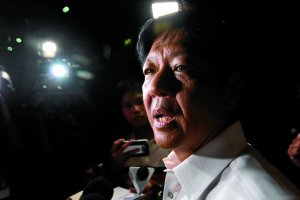The Bureau of Corrections (BuCor) was already negotiating for a bigger share in production in its lease agreement with a banana exporting firm owned by the family of Davao del Norte Rep. Antonio “Tonyboy” Floirendo Jr. even before it was engulfed in controversy, BuCor chief Benjamin delos Santos said on Wednesday.
He said BuCor had started studying its options after questions were raised over the legality of its joint venture agreement with Tagum Agricultural Development Corp. (Tadeco) for the use of the agricultural lands owned by the Davao Prison and Penal Farm in Davao del Norte.
“The joint management committee [of BuCor and Tadeco] started discussions on increased production sharing and income as early as January,” Delos Santos said.
Delos Santos said the BuCor would have to take complete control of the property if the Department of Justice (DOJ) decided to void the 25-year lease contract, which is set to expire in 2029.
He said he would also await the recommendation of the House committees on justice and good government, which conducted an inquiry into the 1969 land deal which Speaker Pantaleon Alvarez claimed was disadvantageous to the government.
“We have to secure the Tadeco premises to prevent looting,” he said.
A DOJ investigating panel created by Justice Secretary Vitaliano Aguirre II had concluded that the contract was “fraught with [legal] infirmities” and violated the law on public bidding.
Fallout
The review of the deal was believed to be an offshoot of the falling-out between Alvarez and Floirendo, both known close political allies of President Duterte, which was reportedly triggered by a public spat involving their mistresses.
Alex Valoria, Tadeco president, had said the company had been hiring inmates in support of the BuCor’s rehabilitation program for convicts serving time at the penal colony.
As to claims that the deal was financially unfavorable to the government, he said Tadeco paid a total of P142.72 million in 2016 to the national government representing a 45-percent share in production.


